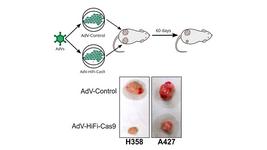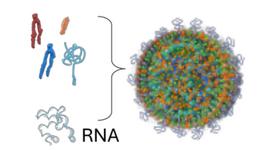CRISPR screening unveils ATXN3 as a new cancer treatment target
The researchers transfected into melanoma cells a targeted library of all 96 mammalian deubiquitinase family members and subsequently sorted the cells for low and high PD-L1 expression to identify regulators. ATXN3 was found to positively influence PD-L1 transcription, aiding tumor cells in evading the immune system.
This novel insight provides a promising target for enhancing the efficacy of checkpoint blockade antitumor immunotherapy, potentially transforming cancer treatment strategies. The study also highlights ATXN3's broader role in regulating tumor microenvironmental responses to hypoxia and inflammation, opening new avenues for cancer research and therapy.
The study was published in The Journal of Clinical Investigation and you can read it here: doi.org/10.1172/JCI167728
To get more of the CRISPR Medicine News delivered to your inbox, sign up to the free weekly CMN Newsletter here.
Tags
CLINICAL TRIALS
Sponsors:
Guangzhou Women and Children's Medical Center
Sponsors:
AMERICAN ORGAN TRANSPLANT AND CANCER RESEARCH INSTITUTE LLC







